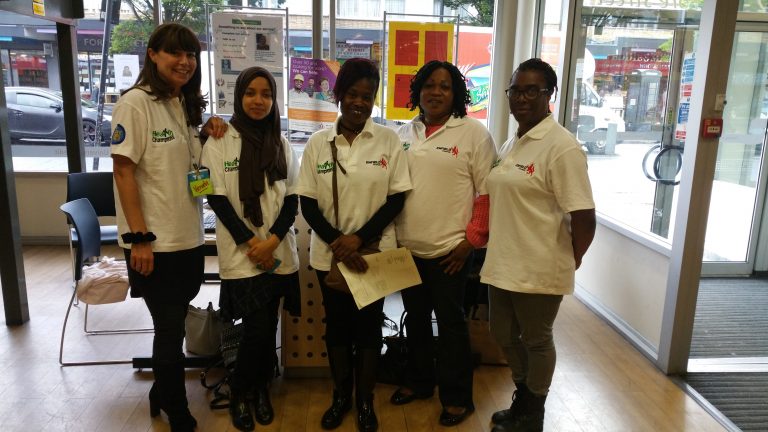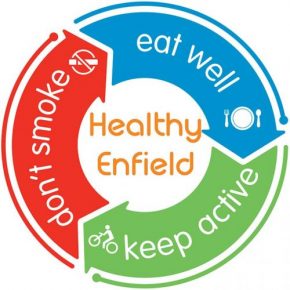Making every contact count
Thousands of people in Enfield live with at least one if not several long-term conditions. Long-term conditions can affect many parts of a person’s life, from their ability to work and have relationships to housing and education opportunities. Care of people with long term conditions accounts for 70% of the money we spend on health and social care.
About half the cases of long-term conditions are attributable to behavioural factors such as tobacco use, alcohol consumption, poor diet, and physical inactivity (Moving, Eating, Drinking, Smoking (MEDS).
Making Every Contact Count (MECC) is an approach to behaviour change that utilises the millions of day-to-day interactions between organisations and people to encourage changes in behaviour that have a positive effect on the health and wellbeing of individuals, communities and populations.
MECC Link is a useful signposting resource providing information on locally available services.
Health champions
Meet our health champions
Health Champions are members of the public, who are community based, engaged, trained and supported to volunteer and use their life experience, understanding and position of influence to help their friends, families and work colleagues lead healthier lives.
These volunteers are trained to support healthy eating, physical activity and mental wellbeing in communities. Health Champions provide appropriate peer support, helping build confidence and self-esteem and offering information, advice and guidance. Experience tells us that without this support, many disadvantaged residents are unlikely to act on their own to make sustainable changes based solely on health information.

Role and function of health champions
- Individuals who are engaged, trained and supported to inspire and help their friends, families, neighbours and work colleagues lead more healthy lives
- Effective health promoters within their own communities
- Enhancing volunteering skills and improving health and social benefits to individuals who become involved
- Effective ways of engagement, where people face barriers to making healthy choices
- The role can be applied across different health issues and settings
- Trained up to Royal Society for Public Health Qualification Level 2
